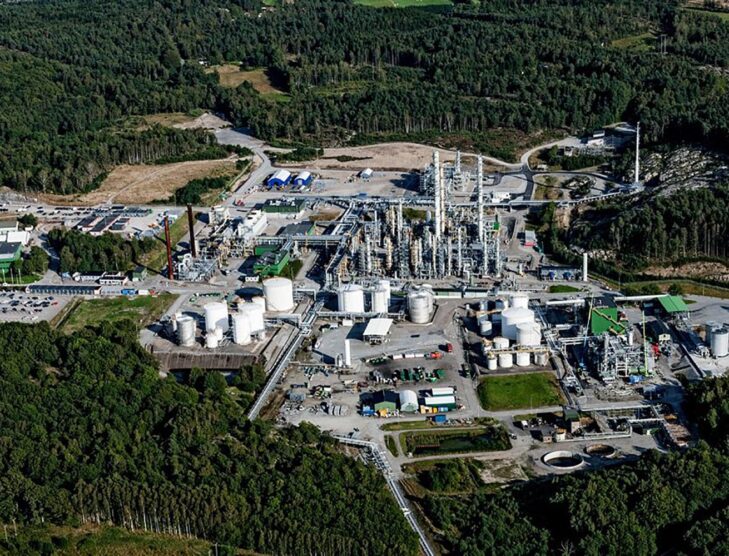
Carbon footprint values available for most of Perstorp products
Perstorp, a specialty chemicals company, is aligning with the new industry standard for product carbon footprint (PCF), developed by the industrial initiative Together for Sustainability (TfS).
Based in Malmö, Sweden, Perstorp was recently acquired by PETRONAS Chemicals Group Berhad (PCG), Malaysia´s leading integrated chemicals provider and part of PETRONAS Group.
The focus on product carbon footprint is strongly increasing, in line with the emerging emphasis on reducing CO2 emissions and sharing carbon footprint at a product level. Swedish based sustainable solutions provider Perstorp currently has product carbon footprint values for more than 80 products, which corresponds to about 85% of the company’s sales volume. These values are updated annually, based on production plant-specific conditions. All the PCF values for Perstorp´s Pro-Environment products, contributing to the sustainable transformation of value chains by substituting fossil feedstock with renewable and recycled, are ISCC PLUS certified.
The International Sustainability & Carbon Certification (ISCC) is an international certification system covering all kinds of bio-based feedstocks and renewables catering to energy, food, feed, and chemicals sectors. ISCC PLUS is a sustainability certification program for bio-based and circular (recycled) raw materials for all markets and sectors not regulated as transportation fuels under the European Renewable Energy Directive (EU RED) or Fuel Quality Directive (FQD), which are covered under the ISSC EU certification scheme.
Carbon footprint data is central for companies working towards CO2 emission reduction targets, and for making informed decisions by comparing the footprint of different products. To enable companies further down the value chain, including brand owners to make carbon footprint calculations of their individual products, it is crucial that the chemical industry can provide this data for their products, which in turn are raw materials used in thousands of end products.
“Transparently sharing this type of information with our customers is an important part of being a sustainable solutions provider and serving value chain needs,” says Anna Berggren, VP Sustainability at Perstorp. “Product carbon footprint is an important way of providing value with our Pro-Environment products; it shows how they reduce CO2 emissions by substituting fossil feedstock with renewable or recycled alternatives, which gives an effect for all downstream parties and products in the value chain. We have products already today that are climate positive up to our gate when including biogenic CO2 uptake, and we will continuously reduce the carbon footprint of all our products along our reduction roadmaps towards reaching our Science-Based emission reduction targets in 2030.”
As part of the joint initiative Together for Sustainability, companies from the global chemical industry have agreed on a global guideline for calculating product carbon footprints. Perstorp was one of several companies which evaluated and tested the new methodology during spring 2022. Perstorp has been calculating and sharing product carbon footprint values with customers for many years, but has now also developed a digital tool that makes it easy and accessible to share the values with customers.
echo '








